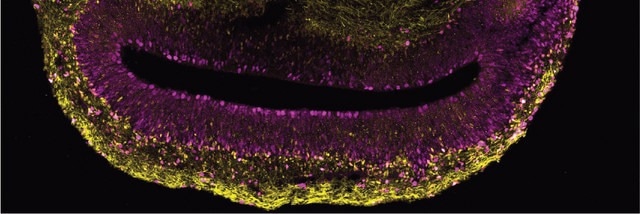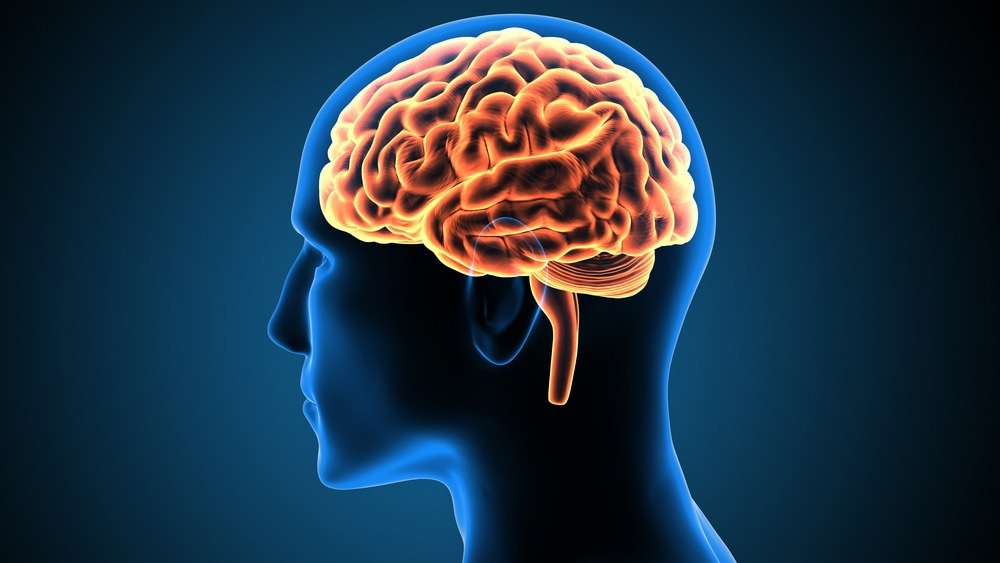Great ape animal experiments have long been prohibited in Europe due to ethical concerns. An alternative to using animals in investigations is the use of organoids, which are three-dimensional cell structures that can be generated in the lab and are only a few millimeters in size.
 A section of a brain organoid made from stem cells of a human. In magenta are actively proliferating brain stem cells, in yellow a subset of brain stem cells. Image Credit: Jan Fischer.
A section of a brain organoid made from stem cells of a human. In magenta are actively proliferating brain stem cells, in yellow a subset of brain stem cells. Image Credit: Jan Fischer.
Pluripotent stem cells, which later develop into particular cell types like nerve cells, can be used to create these organoids. The study team was able to create both chimpanzee and human brain organoids.
These brain organoids allowed us to investigate a central question concerning ARHGAP11B. In a previous study we were able to show that ARHGAP11B can enlarge a primate brain. However, it was previously unclear whether ARHGAP11B had a major or minor role in the evolutionary enlargement of the human neocortex.”
Wieland Huttner, Study Co-Lead Author, Max Planck Institute of Molecular Cell Biology and Genetics
Chimpanzee organoids that resembled brain ventricles had the ARGHAP11B gene first introduced. Would the ARGHAP11B gene cause the chimpanzee brain's brain stem cells to multiply, which is required for the neocortex to enlarge?
Our study shows that the gene in chimpanzee organoids causes an increase in relevant brain stem cells and an increase in those neurons that play a crucial role in the extraordinary mental abilities of humans.”
Michael Heide, Study Lead Author and Head, Junior Research Group Brain Development and Evolution, Deutsches Primatenzentrum
Michael Heide is also an employee at the MPI-CBG.

Image Credit: Life science/Shutterstock.com
The volume of these brain stem cells was reduced to that of a chimpanzee when the ARGHAP11B gene was knocked out in human brain organoids or the ARHGAP11B protein's activity was suppressed.
We were thus able to show that ARHGAP11B plays a crucial role in neocortex development during human evolution.”
Michael Heide, Study Lead Author and Head, Junior Research Group Brain Development and Evolution, Deutsches Primatenzentrum
Julia Ladewig, the third of the lead authors, from HITBR says: “Given this important role of ARHGAP11B, it is furthermore conceivable that certain maldevelopments of the neocortex may be caused by mutations in this gene.”
Source:
Journal reference:
Fischer, J., et al. (2022) Human-specific ARHGAP11B ensures human-like basal progenitor levels in hominid cerebral organoids. EMBO Reports. doi.org/10.15252/embr.202254728.